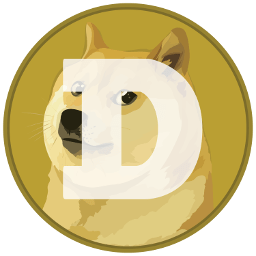menu
Why Integrating dApps with Phantom Extension Feels Like a Game Changer for Solana Users
Okay, so check this out—I’ve been diving deep into the Solana ecosystem lately, and honestly, something about how dApps mesh with wallets blew me away. I mean, wallets are the gateway, right? Without smooth integration, all the DeFi protocols and NFT marketplaces just feel clunky. You get what I mean?
At first, I thought all wallets were basically the same—just digital vaults to hold your seed phrases and tokens. But then I started fiddling with some projects, and wow, the experience varies wildly. That’s where the phantom extension came into my radar.
Really, the way it plugs into dApps is slick. You don’t have to jump through hoops to approve transactions or switch networks manually over and over. It’s almost like the wallet anticipates what you want to do next. Something felt off about other wallets—they seem like an afterthought rather than built for seamless DeFi or NFT use.
Hmm… I remember trying a few DeFi protocols on Solana using different wallets, and each one had this awkward lag or weird UI pop-ups that killed the vibe. But with Phantom, the flow is fluid. Like, you click “connect,” and bam, you’re in. No extra windows, no confusing seed phrase warnings every time. Okay, I’m biased, but that matters when you’re chasing quick trades or minting limited editions.
Here’s the thing. Seed phrases—yeah, they’re the backbone of wallet security, but they can be a pain. Most people dread writing down that 12 or 24-word string. Phantom handles this part thoughtfully, making backup straightforward without overwhelming you. So many wallets dump you into a panic about losing access, but this one eases you into it.
And speaking of seed phrases, let me pause for a sec—did you know some wallets don’t even warn you properly if you’re about to expose your phrase? I found that crazy. Phantom’s approach felt more responsible, like it respects the user’s learning curve. Not to mention, the recovery process feels less like rocket science.
Now, moving back to dApp integration. On one hand, you want your wallet to be super secure, but on the other, you don’t want to spend five minutes approving every tiny action. Phantom walks that line better than most. It offers granular permission control, so you can trust apps without giving away the farm. Though actually, it took me a minute to fully grasp how to tweak those settings—user-friendly but with depth for pros.
And I gotta say, the interface itself is pretty clean. No clutter, just the essentials. Which helps when you’re juggling multiple DeFi protocols simultaneously. Because, honestly, that’s the reality for serious Solana users. Sometimes you’re farming yield on one platform, staking tokens on another, and flipping NFTs on a third. Phantom extension makes managing that kinda chaos manageable.
Something else worth mentioning—the way Phantom handles transaction failures. It gives you clear feedback and suggestions instead of cryptic error codes. That’s a small detail, but it really reduces the frustration when things don’t go as planned (and they often don’t in crypto).
Okay, I gotta admit, I’m not 100% sure about how Phantom’s security compares under extreme attacks, but so far, it feels robust. And I keep my seed phrase offline anyway—call me paranoid, but better safe than sorry.
Plus, the community support around Phantom is pretty active. You can find guides, troubleshooting tips, and user discussions easily. That’s a big deal when you’re navigating new DeFi protocols that sometimes change rapidly or have quirky requirements.

Check this out—using the phantom extension to connect with a Solana-based lending protocol felt instant. No weird redirects, no confusing pop-ups. That smoothness is what I think will push Solana adoption further because it lowers the barrier for newcomers.
Why dApp Integration Matters More Than You Think
Initially, I thought the wallet was just a tool to store tokens and sign transactions. But then it hit me—if your wallet isn’t perfectly in sync with the dApps you’re using, you lose precious time and sometimes money. Imagine missing an arbitrage opportunity or a limited NFT drop just because your wallet lagged or the connection failed.
DeFi protocols, especially on Solana, thrive on speed and low fees, but that only works if your wallet is a partner, not a bottleneck. Phantom’s integration tackles that head-on. The wallet’s built-in support for Solana’s SPL tokens, native token swaps, and staking features means you don’t have to jump between apps or extensions.
My instinct said this kind of integration would come at the cost of security. But Phantom proves you can have both. They use advanced cryptographic techniques and local key storage, so your keys never leave your device. That’s a big deal. Honestly, I was surprised how much you get without sacrificing control.
Though, of course, no wallet is foolproof. You still have to be vigilant about phishing and fake dApps. Phantom helps here by showing clear URLs and warnings, but as always, user caution is key.
It’s also interesting how Phantom bridges the gap between casual users and DeFi veterans. Newcomers can get started quickly, while power users appreciate the customizable settings. That balance is tough to strike, and many wallets fall short.
By the way, if you’re looking to get started, the phantom extension setup is straightforward. It walks you through seed phrase creation, backup, and connecting with popular dApps. No jargon-heavy pages or confusing menus.
One last thought—while Phantom excels in the Solana ecosystem, the crypto world is always evolving. I’m curious how it will adapt as more complex DeFi products emerge or if Solana scales further. For now, it’s a solid choice that just feels right.
So yeah, if you’re in the Solana space and tired of clunky wallet experiences, give Phantom a shot. It’s not perfect, but it nails the key stuff—speed, security, and seamless dApp integration. And honestly, that’s very very important when you’re handling real assets.
Frequently Asked Questions
What makes Phantom extension different from other Solana wallets?
Phantom offers native dApp integration with a smooth user interface, granular permission controls, and local key storage for enhanced security. Its seamless connection to DeFi protocols and NFT platforms sets it apart by reducing friction and improving speed.
How does Phantom handle seed phrase security?
Phantom guides users through seed phrase creation and backup in a user-friendly way, emphasizing offline storage and caution. It never transmits your seed phrase online, ensuring your keys stay on your device.
Can I use Phantom extension for both DeFi and NFTs?
Absolutely. Phantom supports Solana’s SPL tokens and NFTs, allowing you to manage assets, stake tokens, and interact with a wide range of DeFi protocols and NFT marketplaces directly through the extension.






















